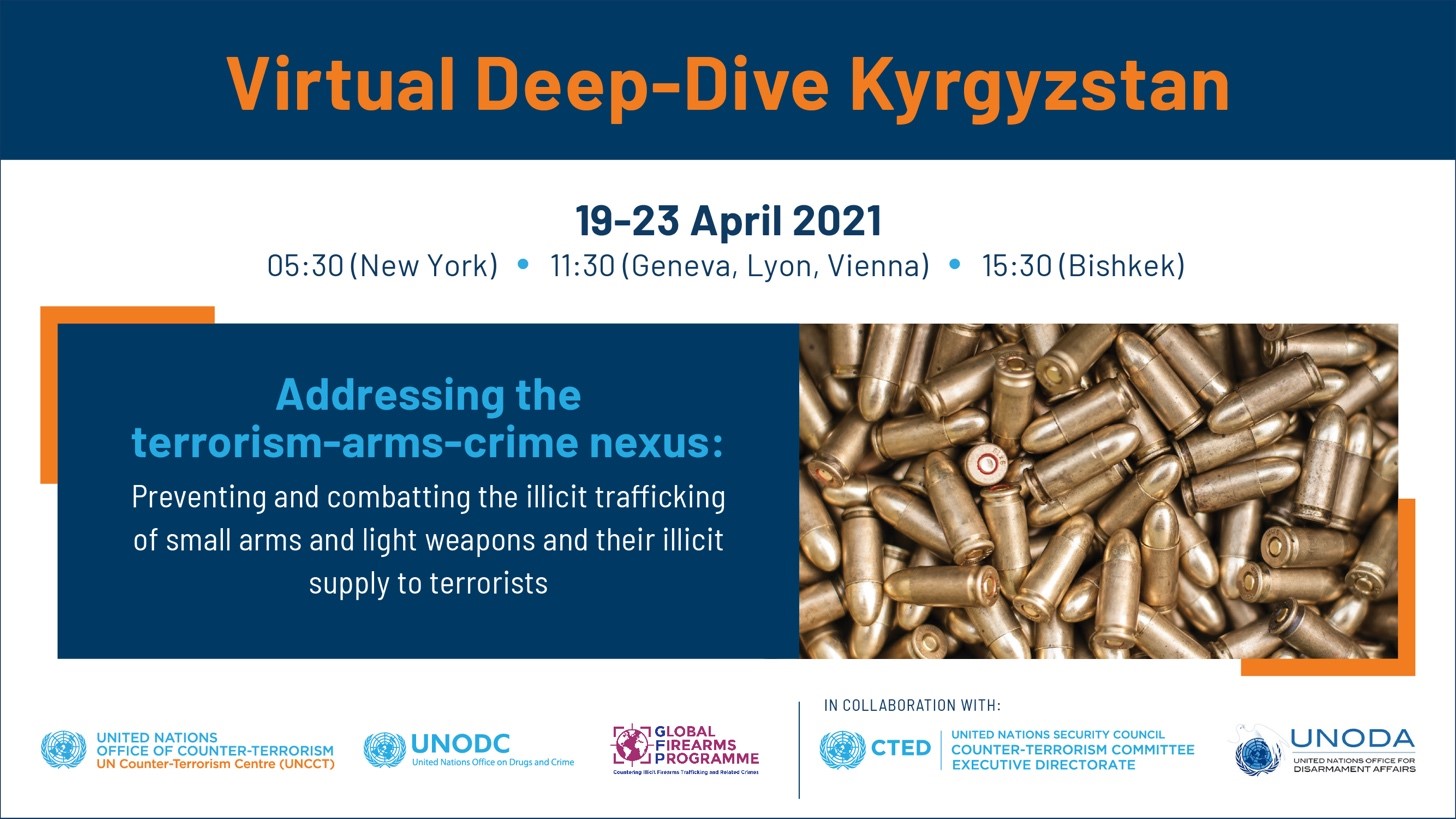Assessment mission addresses terrorism-arms-crime nexus in Kyrgyzstan

The connection between terrorism and organized crime, including the illicit trafficking of small arms and light weapons (SALW), is a serious threat to international peace and security.
As part of the United Nations’ efforts to address this threat in Central Asia, the United Nations Counter-Terrorism Committee Executive Directorate (CTED) – leading the assessment – together with the United Nations Counter-Terrorism Centre of the United Nations Office of Counter-Terrorism (UNOCT/UNCCT), the United Nations Office on Drugs and Crime (UNODC), the United Nations Office for Disarmament Affairs (UNODA) and the World Customs Organization (WCO) conducted a virtual deep-dive assessment mission to Kyrgyzstan from 19 to 23 April 2021. This assessment is part of a UNCCT and UNODC project on “Addressing the terrorism-arms-crime nexus: Preventing and combatting the illicit trafficking of small arms and light weapons and their illicit supply to terrorists” in Central Asia.
Many terrorist groups around the world tend to prefer using small arms and light weapons as these are cheap and easy to access, transfer, hide, and use. The challenges that Member States face to detect, seize, and trace illicit firearms, as well as the difficulties in investigating and prosecuting specific firearms trafficking cases, constitute other incentives for terrorists and criminals to move illicit weapons between countries and regions.
Resolution 2370 (2017), unanimously adopted by the United Nations Security Council, calls on all States to eliminate the supply of weapons to those involved in terrorist acts. This is the first resolution dedicated to addressing the linkage between weaponry and terrorist acts and strongly condemning the continued flow of weapons, including SALW. The UNCCT/UNODC project was initiated to support the implementation of this resolution, as well as the 2015 Madrid Guiding Principles on Foreign Terrorist Fighters and its 2018 Addendum.
Kyrgyzstan has undertaken a number of initiatives aimed at strengthening the control of the circulation of small arms and preventing the illicit trade in arms. These initiatives include amending the “Law on Weapons” (1999) and completing several major legislative reforms, including the adoption of a new Criminal Code, Code of Criminal Procedure, Code of Executing Sentences and Code on Conduct Violation. The country has taken steps to strengthen coordination and information-sharing by its law-enforcement agencies and by border-management agencies, as well to update the equipment used at border crossing points.
The virtual deep-dive assessment mission allowed for an interactive dialogue between national institutions and project stakeholders to ensure a comprehensive understanding of the current situation related to illicit SALW trafficking and its links to terrorism in Kyrgyzstan and the Central Asian region as a whole.
Through this assessment, National institutions had an opportunity to discuss in detail their current initiatives and capacities to prevent and combat the illicit trafficking and supply of SALW to terrorists, as well as the status of implementation of relevant international instruments and Security Council resolutions on counter-terrorism, including resolutions 1373 (2001), 2462 (2019), and 2482 (2019). This assessment also allowed the United Nations and Kyrgyz authorities to analyze the existing legislative, institutional, and operational framework and capacity response, as well as to identify their priority technical assistance needs, which could be addressed and supported through the project.

